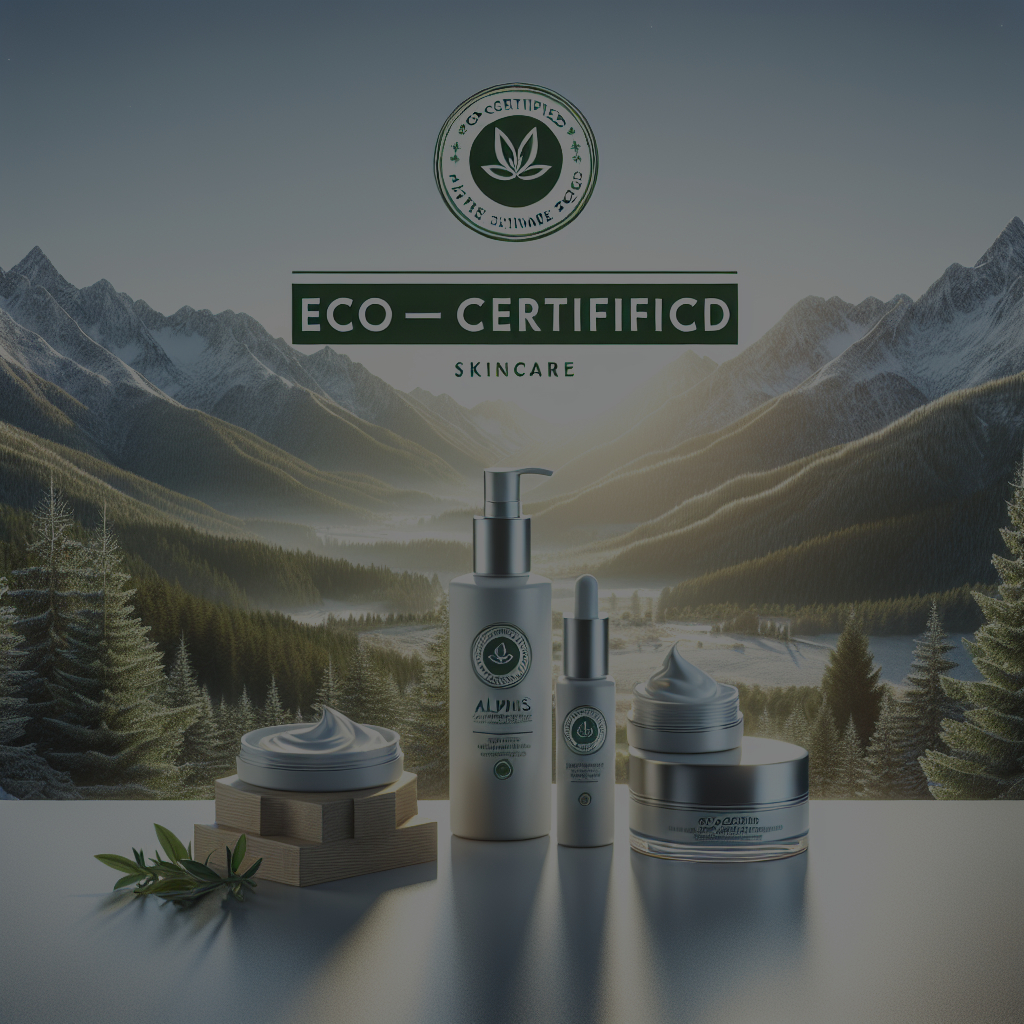
Eco-certifications have become a crucial factor for consumers when choosing alpine skincare products. These certifications not only ensure the quality and efficacy of the products but also guarantee that they are produced in an environmentally sustainable manner. In this article, we will explore the most important eco-certifications to look for in alpine skincare products and why they matter.
Understanding Eco-Certifications
Eco-certifications are labels or seals awarded to products that meet specific environmental and sustainability standards. These certifications are granted by independent organizations that evaluate various aspects of a product’s lifecycle, from sourcing raw materials to manufacturing processes and packaging. For alpine skincare products, eco-certifications are particularly important because they often involve ingredients sourced from delicate mountain ecosystems.
Why Eco-Certifications Matter
Eco-certifications provide consumers with the assurance that the products they are using are not only effective but also environmentally responsible. These certifications help to:
- Protect Natural Resources: By ensuring that ingredients are sustainably sourced, eco-certifications help to preserve the natural beauty and biodiversity of alpine regions.
- Reduce Environmental Impact: Certified products are often produced using eco-friendly manufacturing processes that minimize waste and pollution.
- Promote Ethical Practices: Many eco-certifications also consider the social and economic impact of production, ensuring fair labor practices and community support.
- Enhance Consumer Trust: Eco-certifications provide transparency and build trust between consumers and brands, making it easier for consumers to make informed choices.
Key Eco-Certifications for Alpine Skincare Products
There are several eco-certifications that are particularly relevant for alpine skincare products. Here are some of the most recognized and respected certifications to look for:
1. COSMOS Standard
The COSMOS (COSMetic Organic and Natural Standard) certification is one of the most comprehensive and widely recognized eco-certifications for cosmetics and skincare products. It is a collaboration between several European certification bodies, including Ecocert, Soil Association, and BDIH. The COSMOS standard covers various aspects of product development, including:
- Ingredient Sourcing: Ensuring that ingredients are sustainably sourced and free from harmful chemicals.
- Manufacturing Processes: Promoting eco-friendly production methods that minimize environmental impact.
- Packaging: Encouraging the use of recyclable and biodegradable packaging materials.
- Labeling: Providing clear and transparent information to consumers about the product’s eco-friendly credentials.
2. NATRUE
NATRUE is an international certification that focuses on natural and organic cosmetics. It was established by the International Natural and Organic Cosmetics Association and is known for its strict criteria. NATRUE certification ensures that products are:
- Free from Synthetic Ingredients: Only natural and organic ingredients are allowed, with no synthetic fragrances, colors, or preservatives.
- Environmentally Friendly: Products must be produced using sustainable practices that protect the environment.
- Transparent: Clear labeling and ingredient lists are required to help consumers make informed choices.
3. Ecocert
Ecocert is one of the oldest and most respected eco-certification bodies, established in France in 1991. It certifies a wide range of products, including cosmetics and skincare. Ecocert certification ensures that products meet high environmental and social standards, including:
- Natural Ingredients: At least 95% of the ingredients must be of natural origin.
- Organic Content: A minimum percentage of the ingredients must be organically grown.
- Eco-Friendly Production: Sustainable manufacturing processes that reduce environmental impact.
- Social Responsibility: Fair labor practices and support for local communities.
How to Identify Eco-Certified Alpine Skincare Products
Identifying eco-certified alpine skincare products can be challenging, especially with the abundance of products on the market. Here are some tips to help you find genuinely eco-certified products:
Check the Label
Look for certification logos on the product packaging. Reputable eco-certifications, such as COSMOS, NATRUE, and Ecocert, will have their logos prominently displayed on certified products. These logos are a quick and easy way to identify products that meet high environmental and sustainability standards.
Read the Ingredient List
Examine the ingredient list to ensure that the product contains natural and organic ingredients. Avoid products with synthetic chemicals, artificial fragrances, and preservatives. Certified products will often have a clear and transparent ingredient list, making it easier for you to make informed choices.
Research the Brand
Do some research on the brand to understand their commitment to sustainability and environmental responsibility. Many brands will have information about their eco-certifications and sustainability practices on their websites. Look for brands that prioritize ethical sourcing, eco-friendly production, and social responsibility.
Look for Third-Party Reviews
Check for reviews and ratings from third-party sources, such as consumer organizations and environmental groups. These reviews can provide valuable insights into the quality and sustainability of the products. Look for products that have received positive feedback for their eco-friendly credentials and effectiveness.
The Future of Eco-Certified Alpine Skincare
The demand for eco-certified alpine skincare products is expected to continue growing as consumers become more aware of the environmental and social impact of their choices. Brands that prioritize sustainability and transparency will likely see increased consumer loyalty and trust. Here are some trends to watch for in the future of eco-certified alpine skincare:
Increased Transparency
Consumers are increasingly demanding transparency from brands about their sourcing, production, and sustainability practices. Brands that provide clear and detailed information about their eco-certifications and sustainability efforts will likely gain a competitive edge.
Innovation in Sustainable Packaging
Packaging is a significant concern for eco-conscious consumers. Expect to see more innovation in sustainable packaging solutions, such as biodegradable materials, reusable containers, and minimalistic designs that reduce waste.
Focus on Local and Ethical Sourcing
Brands will continue to prioritize local and ethical sourcing of ingredients to reduce their environmental footprint and support local communities. This trend will likely lead to more partnerships with local farmers and producers in alpine regions.
Advancements in Eco-Friendly Formulations
As technology and research advance, we can expect to see more eco-friendly formulations that deliver high performance without compromising on sustainability. This includes the development of new natural and organic ingredients that are both effective and environmentally responsible.
Conclusion
Eco-certifications play a vital role in ensuring that alpine skincare products are both effective and environmentally sustainable. By looking for certifications such as COSMOS, NATRUE, and Ecocert, consumers can make informed choices that support the health of their skin and the planet. As the demand for eco-certified products continues to grow, brands that prioritize sustainability and transparency will lead the way in the future of alpine skincare.

